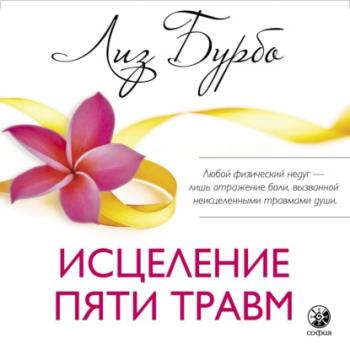Зарубежная психология
Различные книги в жанре Зарубежная психологияHindsight: The Unraveling Effects of Addiction
This is the compelling story of one family’s devastating struggles through addiction—the seemly white picket fence family’s downfall. It takes you through “typical” teenage underage drinking and house parties, following the misuse of recreational drugs that lead to major accidents, arrests, and tragedy. What should have been a successful happy family’s future became a life of addiction, depression, and lies that all lead to the destruction of one family.
Ryan and Matt, twin brothers, were your all-American boys. Some would say everything going for them—good looks, smart, athletic, and musically gifted. On the outside they had it all, but on the inside, they both had a dark secret hidden from everyone that led them both down a black hole.
The book talks about a mother’s and daughter’s journey to help her sons and brothers get the help they needed. Fighting every step of the way in a world that stigmatizes against addiction, which has very limited resources and treatment.
Исцеление пяти травм
Долгожданное продолжение бестселлера Лиз Бурбо «Пять травм, которые мешают быть самим собой», переведенного на 16 языков и выдержавшего десятки переизданий на русском. В своей новой книге Лиз Бурбо подводит итоги многолетних исследований пяти душевных травм и их терапии. Ключевые концепции получают дальнейшее развитие. Даются простые и действенные методики диагностики и исцеления пяти травм. Обсуждается роль Эго в психической жизни человека и предлагаются ненасильственные стратегии работы с ним. Предварительного знакомства с другими книгами Лиз Бурбо не требуется. «Исцеление пяти травм» – самодостаточный и мощный инструмент для того, кто хочет стать хозяином своей жизни и достичь глубокой внутренней гармонии.
Methods in Psychological Research
Methods in Psychological Research introduces students to the rich world of research in psychology through student-friendly writing, compelling real-world examples, and frequent opportunities for practice. Using a relaxed yet supportive tone that eases student anxiety, authors Bryan J. Rooney and Annabel Ness Evans present a mixture of conceptual and practical discussions, and spark reader interest in research by covering meaningful topics that resonate with today’s students. In-text features like Conceptual Exercises, FYI sections, and FAQ sections with accompanying visual cues support learning throughout the research experience. The Fourth Edition equips students with the tools they need to understand research concepts, conduct their own experiments, and present their findings.
Interpreting and Using Statistics in Psychological Research
This practical, conceptual introduction to statistical analysis by award-winning teacher Andrew N. Christopher uses published research with inherently interesting social sciences content to help students make clear connections between statistics and real life. Using a friendly, easy-to-understand presentation, Christopher walks students through the hand calculations of key statistical tools and provides step-by-step instructions on how to run the appropriate analyses for each type of statistic in SPSS and how to interpret the output. With the premise that a conceptual grasp of statistical techniques is critical for students to truly understand why they are doing what they are doing, the author avoids overly formulaic jargon and instead focuses on when and how to use statistical techniques appropriately.
Der Erzähler Rudolf Steiner
„Ich lehre nicht, ich erzähle“
Viele von Rudolf Steiner vermittelte Inhalte sind nicht im naturalistisch-wissenschaftlichen Sinne nachprüfbar. Für seine Anhänger wirken sie glaubhaft, weil sie von der Glaubwürdigkeit ihres Urhebers überzeugt sind, für seine Kritiker bieten sie Anlass zu grundlegender Skepsis. Hier schlägt Ulrich Kaiser einen neuen Weg ein. Er löst Steiner aus dem beengenden Vergleichsrahmen der Wissenschaft heraus und will ihn als Erzähler verstehen – nicht aber im Sinne einer beliebigen Konstruktion von Geschichten, sondern eines freilassenden und authentischen Verstehens-Angebots, das sich in der Lebenspraxis bewahrheiten mag.
»Derjenige, welcher die Mitteilungen macht, will … nicht anders wirken als ein Erzähler. Er sagt: ich habe dies oder jenes erfahren, oder mir ist von solchen, die es wissen können, dies oder jenes mitgeteilt worden. Ein gesunder, gerader Verstand, eine wahre Empfindung im Zuhörer wird zunächst zuhören, das heißt weder blind glauben noch blind kritisieren.« Rudolf Steiner









